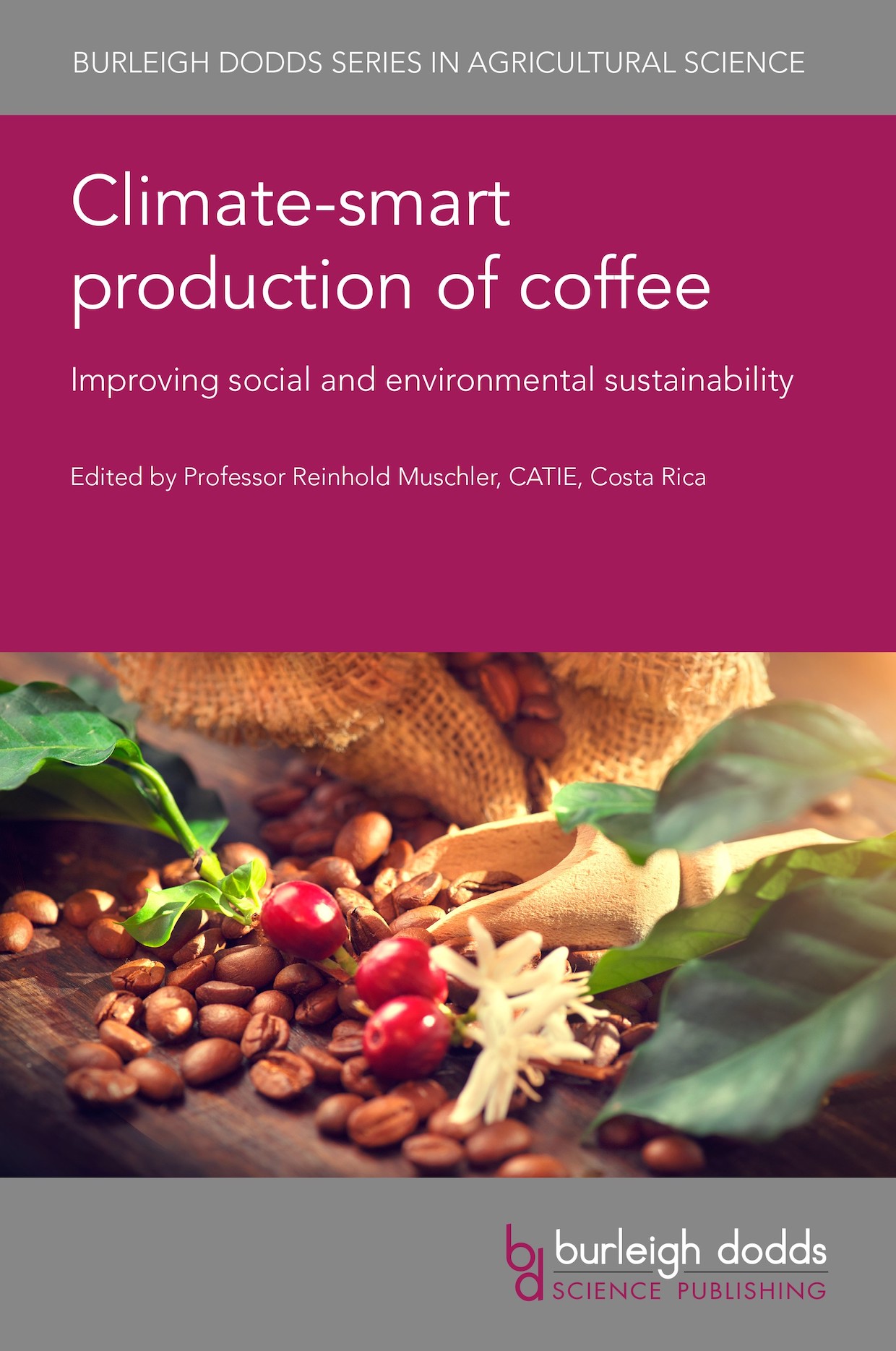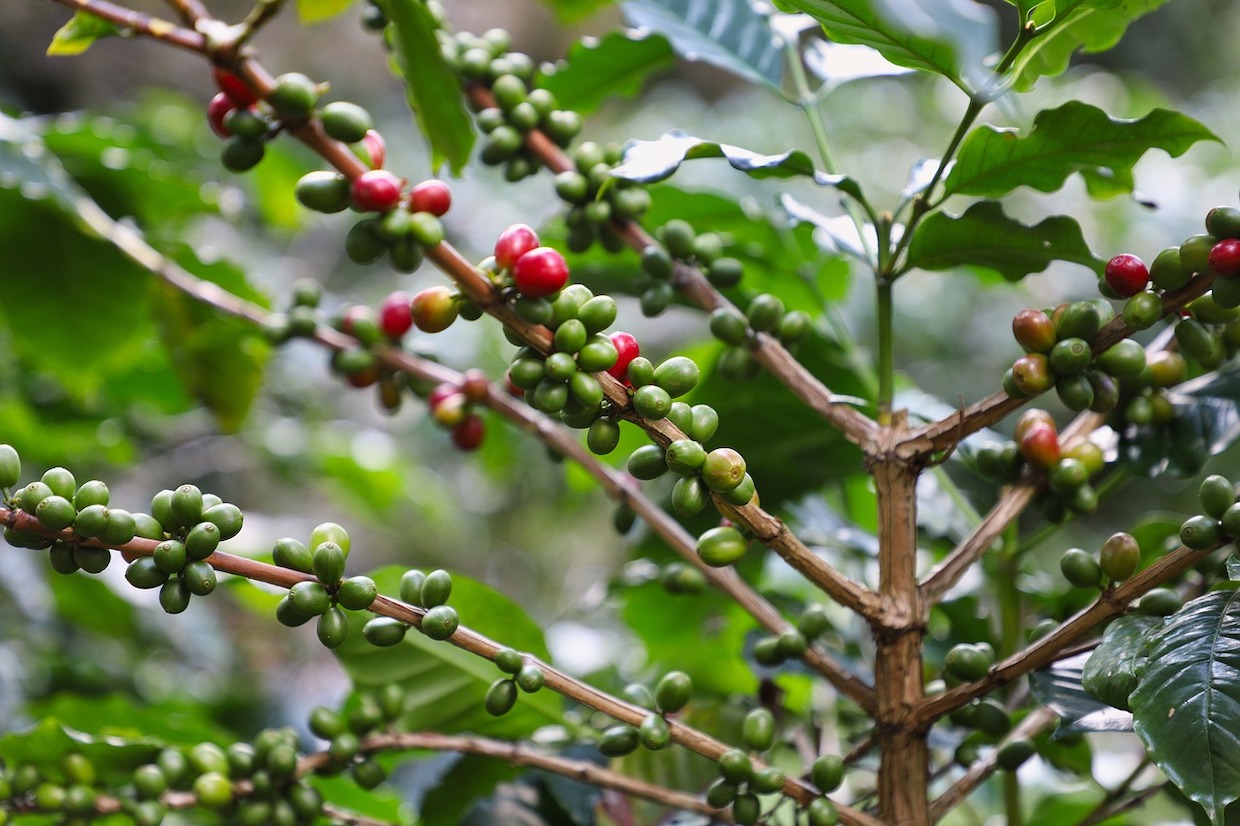UK-based publishing house Burleigh Dodds Science Publishing recently released what is arguably the most comprehensive and well-rounded text on climate-related sustainable agriculture in the coffee sector to date.
Including chapters from more than two dozen expert sources, the book called Climate-Smart Production of Coffee: Improving Social and Environmental Sustainability was edited by Reinhold Muschler, Latin American Chair in Agroecology and Agrobiodiversity at the Center for Agricultural Research and Higher Education (CATIE) in Costa Rica.
It leads with an important caveat, that the costs associated with climate-smart agriculture cannot reasonably be absorbed by the world’s smallholder coffee farmers.
Citing research from the 2020 Coffee Barometer, contributing author and coffee sustainability champion Carlos Brando notes in Chapter 1 that approximately 98% of the world’s coffee farms are small-scale (approximately 5 hectares or less) yet smallholder farmers capture just a small fraction of coffee’s overall value.
“This evidence suggests coffee cultivation is not providing an adequate living income for many smallholder farmers, let alone one that allows them to invest in being environmentally more sustainable and resilient in the face of climate change,” Brando writes.
Thus, the book sets forth with the premise that costs associated with transitioning to climate-smart agriculture must be considered and addressed by multiple stakeholders, and that all approaches should take into account the working realities of farmers.
The book is divided into two parts. Part 1 explores a range of topics and needs regarding social and environmental sustainability, while Part 2 dives more squarely into sustainable pest and disease management.
“The global demand for coffee is set to skyrocket by 2050 and with more demand comes the need for more product which itself brings a whole host of issues,” Francis Dodds, editorial director at Burleigh Dodds Science Publishing, said in an announcement of the book’s publication. “The sector needs to develop and establish more sustainable methods of production that can meet this growing demand whilst also ensuring that its carbon footprint remains as minimal as possible.”
Spanning more than 450 pages, the book is available in hardcover or as an e-publication directly through Burleigh Dodds for £150 ($185 as of this writing). Individual chapters can be purchased in PDF form for £25 ($30).
Does your coffee business have news to share? Let DCN’s editors know here.
Comment
2 Comments
Comments are closed.








The pice mentioned reducing carbon dioxide release as a “cure” for “climate change”.
Don’t these agricultural specialists recall that as CO2 in the atmosphere increases, plants increase their rate of growth? WHy? The carbon in the air, part of the CARBON dioxide molecule so demonsied by these guys, is by far the main source of the “buildng material” for plant growth.
I wonder as well if these folks recall that the largest, by several orders of magnitude, reservoir of carbon (in the form of carbon dioxide) is the world’s oceans. Further do they recall the fact that the leading “factor” in the atmospheric temperatur vs carbon dioxide concentration in the air is.. temperature? In other words, more CO2 in the air does NOT lead, or cause, temperature increase, it is the increase in temparature that leads ti the increase in CO2 in the atmosphere.
This is basic geophysics and planetary physucs. Do these guys not understand this?
Further, if CO2 is so harmful toplants, WHY to largescale commercial controlled atmosphere growers build up carbo dioxide in their sealed grow houses to three to five times what is normal in the open atmosphere? They DO this precisely BECAUSE the plants in teir grow houses grow much faster. And they thrive by every other metric as well.
Yes, “sustainable” operations are the best pattern. I have met and become friends with growers in Latn American producing areas. When I was new in this””game” I asked some of them “what about sustainability”? They looked at me and laughed. We are following exactly the methods and practices of our great Grandfather who started our family’s operation in the 1870’s. Same land, same crop, for a hundredfifty years now. We regularly are in the Cup of Excellence auctions. Our production levels are not diminished, and our quality continues to rise. Is that not he definition of a sustainable peration”? We think it is. What should we change when that is what we have ongoing? I ordered more of their most excellent coffees. They have no certifications, no cachets, no awards (other than the COE coffees they produce.
My guess is that this operation will still be producing amazingly good coffee in large volumes in another hundred fifty years. They expect so too.
Very important information but unfortunately it will no reach many of those who need it most due to the cost of the book. Please consider a reduced-cost version for grower organizations!!